St. Petersburg vs. Moscow Region, Sergey Karasev vs. Alexey Shved, Vasily Karasev vs. Dusko Ivanovic.
Where & When
Game 1. Yubileyniy, St. Petersburg, Russia. 8:00 PM (8:00 MSK), May 25
Game 2. Yubileyniy, St. Petersburg, Russia. 5:00 PM (5:00 MSK), May 27
Game 3. BCMO, Khimki, Russia. 7:30 PM (7:30 MSK), May 30
Game 4. BCMO, Khimki, Russia. June 1 (if necessary)
Game 5. Yubileyniy, St. Petersburg, Russia. June 4 (if necessary)
Regular Season
Zenit: 2nd place (21-3)
Khimki: 3rd place (19-5)
Head-to-Head
Round 1: Zenit – Khimki, 114-110
Round 2: Khimki – Zenit, 66-74
Zenit’s Edge
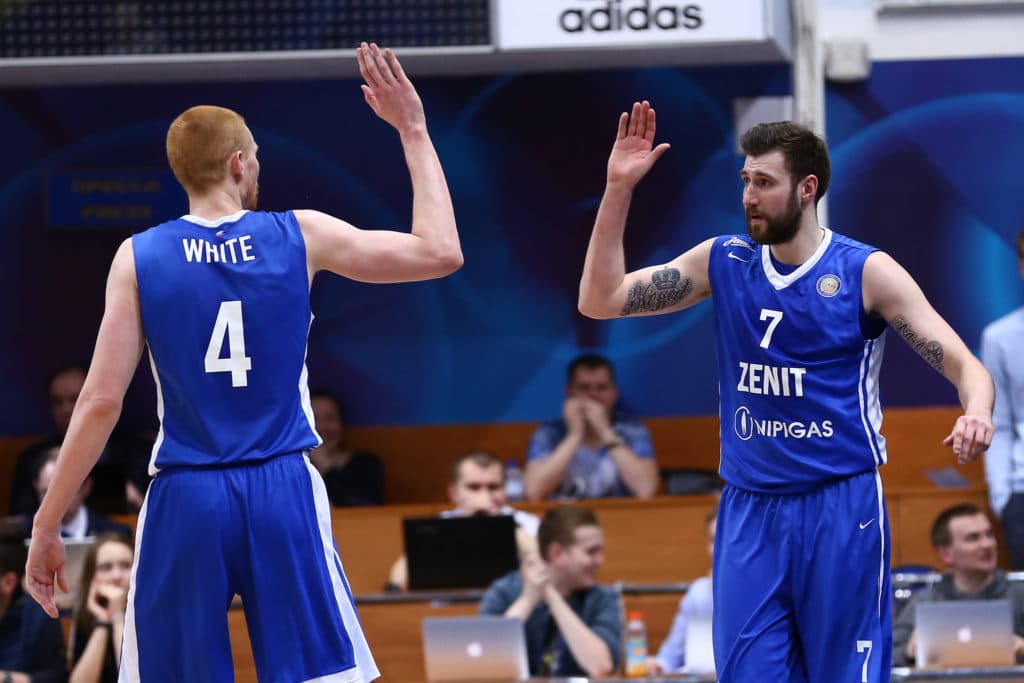
After a breakthough campaign in 2015-16, Zenit set its sights on qualifying for the EuroLeague this season. Following a scintillating regular season, capped by a 15-game winning streak, St. Petersburg brushed off VEF in three games to begin the postseason. The club’s last setback in the League came in mid-December! Entering the showdown with Khimki, Vasily Karasev’s men are playing at a high level and boast home-court advantage.
Zenit blends high-octane offense and fast-break opportunities with disciplined defense, a potent mixture. The team’s two wins over Khimki during the regular season were characteristic of Zenit’s style. St. Petersburg snatched a 114-110 victory at home in the first meeting, then showed its defensive acumen in the return meeting in Khimki, defeating its opponent, 74-66.
Unlike Khimki, whose biggest threat is unquestionably Alexey Shved, Zenit is much less predictable. Sergey Karasev and Janis Timma are both reliable options, Stefan Markovic and Ryan Toolson can cause trouble, and even Aaron White and Demonte Harper have taken over games on occasion. That could be a key factor during a playoff series, given the unpredictability of each game and heroism shown by role players.
Khimki’s Edge
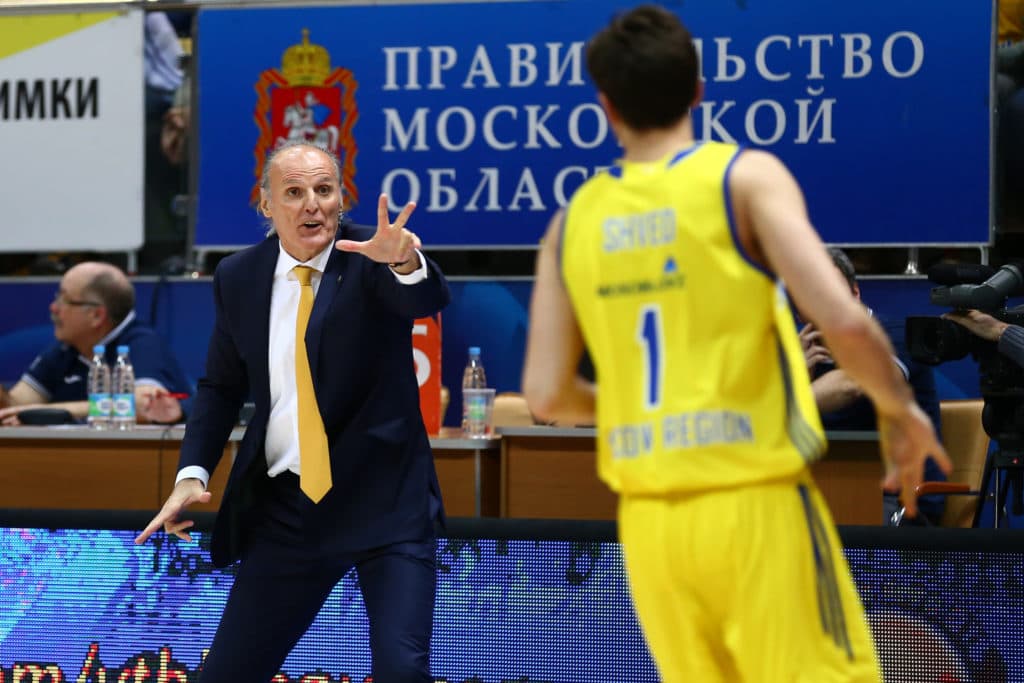
Alexey Shved. One of the primary MVP candidates is preparing to lead his team to the finals and clinch a spot in next season’s EuroLeague. He averaged a League-best 27 points per game against Enisey in the quarterfinals along with posting the top efficiency rating.
Against Zenit, he’ll get extra motivation from facing Sergey Karasev, who had the upper hand in both regular-season meetings. For Shved, those defeats are some of the only blemishes on his MVP resume and he’d love to get revenge. This duel between two of Russia’s top talents is one of the biggest storylines of the entire VTB United League postseason.
Moscow Region may not play with the same kind of pace as Zenit, but Dusko Ivanovic is certainly capable of countering Vasily Karasev. The Khimki boss also prefers small ball and preaches quick decision-making and transition, while utilizing a deep bench to maintain the tempo.
Khimki’s commitment to physical, contact-heavy basketball and constant pressure could be an x-factor. If the Yellow-Blues can bog down Zenit’s fleet-footed guards and forwards, expect Khimki to have the edge.
Zenit’s Weakness
Zenit’s wealth of options on offense is inversely proportional to its lack of defensive stoppers. St. Petersburg doesn’t have any elite one-on-one perimeter defenders, which should be especially concerning with Alexey Shved suiting up for the opponent.
Neutralizing Shved will be a constant concern for St. Petersburg. Zenit had success during the regular season. Stefan Markovic and Demonte Harper were the primary defenders with help from Artem Vikhrov and Sergey Karasev. Of course, the emphasis was not on individual defense, but rather double-teams and aggressive pressure from the big men during pick-and-rolls. The hands-on approach was largely successful during the second meeting (18 points on 33% shooting), though not so much in game one, as Shved lit up Zenit for 29 points on 53% shooting. The All-Star guard isn’t easy to contain, especially during an extended series. St. Petersburg has its work cut out for it.
Khimki’s Weakness
Moscow Region doesn’t have a classic rim protector, or even a reliable defensive big man who gets regular minutes in Ivanovic’s rotation. Marko Todorovic and Robbie Hummel, for all their strengths, rarely get to wag their fingers ala Dikembe Mutombo after a block.
In that sense, consistent three-point shooting–and virtually everyone on Zenit’s roster can shoot–could make life much easier for the #2 seed. If Zenit can stretch Khimki’s defense from beyond the arc, opportunities to drive and feed the paint will abound for St. Petersburg’s backcourt.
Zenit’s X-Factor
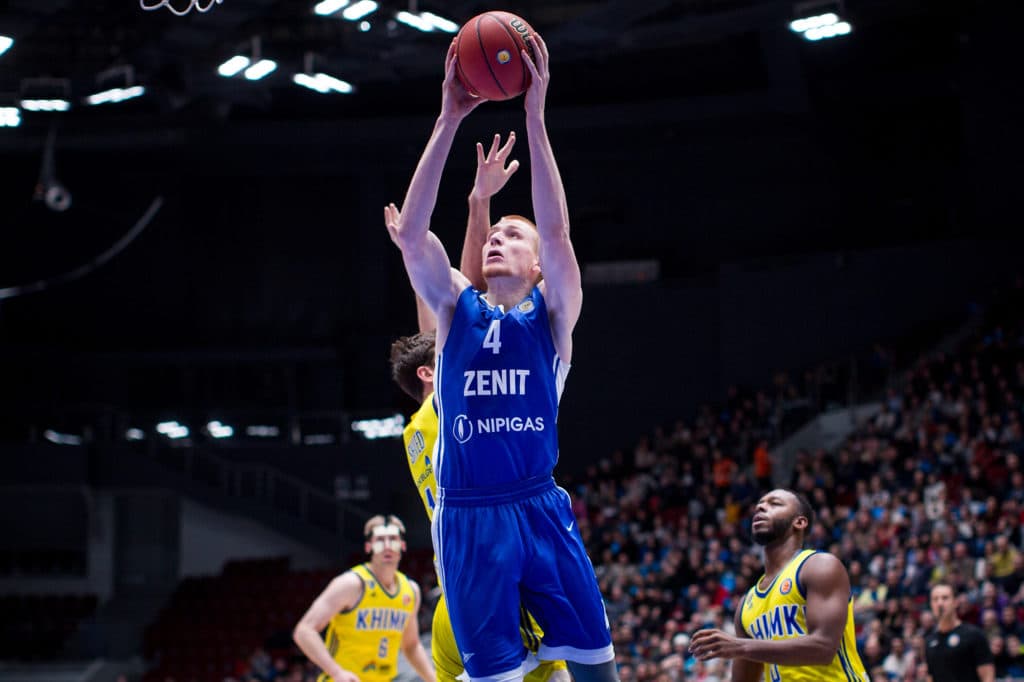
Can someone who led the team in scoring during the quarterfinal series be considered an X-factor? If yes, then Aaron White is a perfect fit. As we know, Zenit has no trouble mixing up the offense. White took the team’s versatility to another level against VEF, shocking the Latvians with 51 points (17 per game) to help St. Petersburg sweep. Typically known for doing the team’s dirty work, White shot above 50% from the field. Khimki, of course, is well aware of White’s breakout series, but if he can keep knocking down shots, Zenit will have a much better chance of advancing.
Khimki’s X-Factor
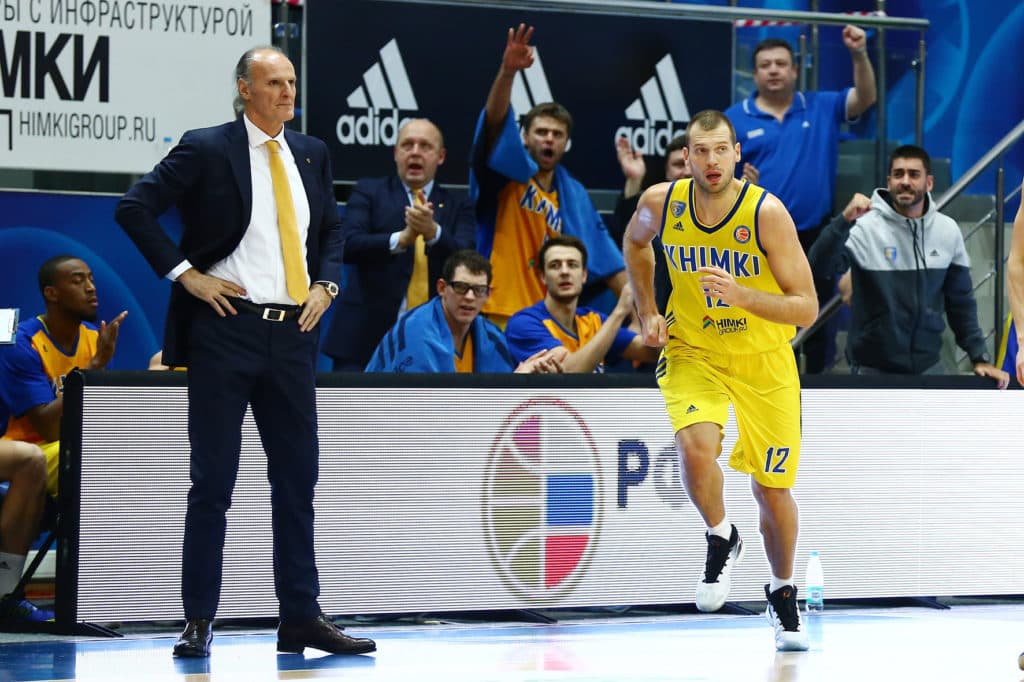
To begin with, Khimki has much more experience in these types of series. Moscow Region also boasts clutch closers in Alexey Shved and the team’s veteran core, a huge asset entering what many expect to be the most competitive match-up of the playoffs. Shved shown plenty of times that he won’t be rattled by the big moment and knows how to get points in crunch time. Meanwhile, 2013 League MVP E.J. Rowland is capable of going one-one, while Sergey Monia and Egor Vyaltsev are always ready to knock down a decisive 3-pointer.
Interesting Facts
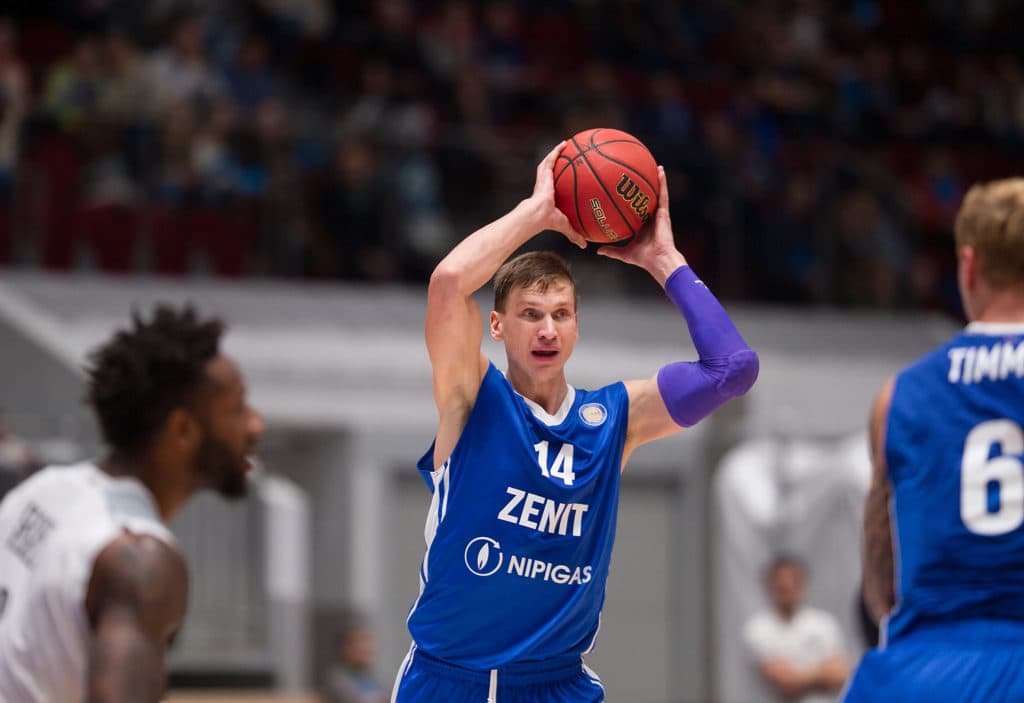
– Zenit center Anton Pushkov is the only player in the series to have competed for both teams.
– Zenit head coach Vasily Karasev has never won a series against another elite team.
– Zenit and Khimki are even (3-3) in League meetings. St. Petersburg won both games this season.
– This is the first playoff meeting between the two teams. Khimki defeated Zenit in the EuroCup round of 16 in 2015, winning both encounters.
– Zenit averages five more assists per game (23.4 vs. 18.4).
– Through 27 games, the two teams each average 38.8 rebounds per game.
– Zenit (90.8 points, 2nd place) and Khimki (88.8 points, 3rd place) are among the League’s most potent offenses.
– Both teams are tough outs on the road: Zenit has only lost once (12-1), while Khimki has only lost twice (11-2).
























